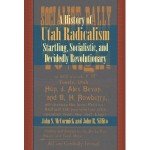 As I explained before, sustaining the law supports agency just as much as sustaining choice. You can’t support one to the detriment of the other without destroying agency in the process. It is a common misunderstanding that laws unrighteously apply force to individuals, so long as they are just and reasonable. They do not force obedience, but they do attach a consequence to behavior that some might perceive as force because they don’t like it.
As I explained before, sustaining the law supports agency just as much as sustaining choice. You can’t support one to the detriment of the other without destroying agency in the process. It is a common misunderstanding that laws unrighteously apply force to individuals, so long as they are just and reasonable. They do not force obedience, but they do attach a consequence to behavior that some might perceive as force because they don’t like it.
Participating in a community is an implicit contractual agreement. There are guaranteed to be some laws you don’t like. I have heard this referred to as “tyranny of the majority” which is an empty catch phrase. “Tyranny of the majority,” in any meaningful sense, is ALWAYS present in life. Whoever has the majority of people behind them has the power. That is not the prerogative of democracy, and complaining about it or imagining it away is merely an exercise in fantasy.
The advantage to democracy is that it exposes this underlying reality to the open air and uses it to slow corruption. Note that it won’t stop corruption, only slow it. I believe that we are currently in a situation where corruption is present throughout the system. Theoretically, democracy should be capable of cleaning out the sump unless the majority of the people also succumb to corruption. It remains to be seen whether or not that is the case in the USA.
That being said, there is nothing inherently good about democracy, just as there is nothing inherently good in ANY form of government, even anarchy or decentralized government. The key to a good government is not structure, it is righteousness.
Alma said it much better. The preaching of the word of God has more power than the sword or anything else which had happened to his people. Power to change minds. Power to change hearts.
I believe that if we as members of the Church of Jesus Christ of Latter-day Saints stop preaching party politics and begin to preach the word of God in the political arena, we will affect true and righteous change. This doesn’t mean proselytizing, necessarily. This means to preach gospel principles. Frugality, self-reliance, charity, peace, patience, acceptance of others’ weaknesses, hard work, hope, sacrifice, unity.
If any of us truly wish to save the collapse of this country, it will not come by finding the political party which best suits us or trying to convert others to our cause. It will certainly not come by vilifying those who do not agree with us. It will not come by government overhaul. It will come because there are people who eschew politics in favor of peace, power in favor of charity, rightness in favor of righteousness.
Unless that happens, there truly is no hope.





